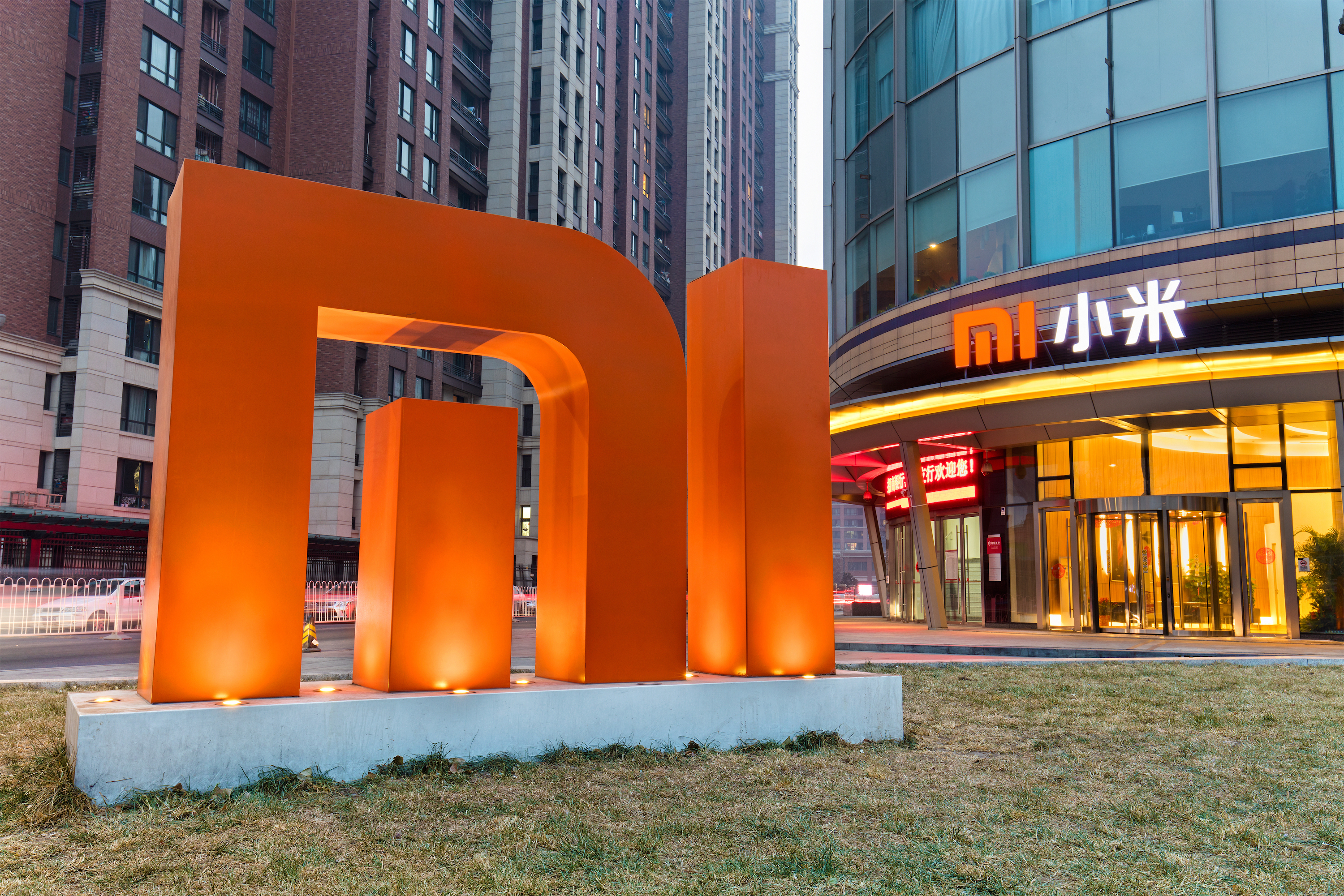Xiaomi’s electric car arrives in 2024 — and it's not as bonkers as it sounds
Xiaomi is making a big move in the EV market to potentially challenge Apple

Xiaomi, the Chinese smartphone maker, is known for slapping its brand on all sorts of different products — regardless of whether they link to its core smartphone business or not. That includes things like smart bulbs, escooters and even suitcases.
But now the company has announced it’s going a step further, with the promise that the first Xiaomi electric car will launch in the first half of 2024. Yes, really. It sounds like an absolutely bonkers idea, but is it?
- The best electric cars you can buy right now
- 9 essential tips for buying an electric car
- Plus: Daymak Spiritus is a three-wheeled EV that mines crypto — really
We’ve all heard about how Apple is another company that’s hoping to make its way into the electric car business. However, the fabled Apple Car has reportedly been in development since at least 2014, and Apple has reportedly had issues trying to make that project a reality.
Whether it’s a loss of key executives, issues finding an automotive partner to aid production or the actual difficulties of switching from phones and computers to a moving car that may, or may not, be completely autonomous — it's clear that Apple is facing some major obstacles.
With that in mind, and considering the automotive industry is already pretty competitive, it seems that jumping from phones to cars would be a pretty crazy idea. Especially given the promise it would be done in such a short amount of time.
For some drivers EVs are a new and strange concept. Having a well known tech brand, such as Apple and Xiaomi, can help customers feel confident in their purchasing choices.
uSwitch
Xiaomi group chairman Lei Jun, who made the announcement at the company’s investor event, certainly doesn’t think so. In fact, Lei claimed that if Xiaomi doesn’t take part in the electric vehicle transition it would “be eliminated” all because “electric cars have now transformed from a mechanical industry to an information industry.”
And this doesn’t seem to be a case of Xiaomi slapping its label on products made by other companies, as it has done with so many other products. The company announced that it is setting up a wholly-owned subsidiary to run its EV business, and will be making an initial investment of $1.54 billion, suggests this is the real deal.
Get instant access to breaking news, the hottest reviews, great deals and helpful tips.
That investment is also expected to reach $10 billion over the next decade too. Which is no small amount of money.
Cars are connected devices, whether we like it or not
Of course, Lei is not wrong when he says that the automotive industry is now more of an information industry than a mechanical one. Cars are becoming more and more advanced and hi-tech, and are going to be increasingly reliant on data and connectivity to operate.
That’s especially true where autonomous cars are concerned, since the tech industry has sold people on the idea that self-driving cars will be linked via enhanced connectivity networks. That would, in turn, make them more aware of the presence of other cars, and be able to alter their speed, route and positioning accordingly.
According to price comparison website Uswitch, electric cars of the future could only benefit from the expertise and experience afforded by tech giants like Xiaomi, Apple or Google. “Approaching building a car from a tech POV is going to allow the sector to thrive in a connected world that embraces new advancements in technology,” Uswitch said in a statement to Tom’s Guide.
Prof Sergio Savaresi, Full professor in Automatic Control at Politecnico di Milano, also pointed out that “the technology content of an autonomous vehicle is largely biased towards digital technologies.” While we’re not at the point where cars can drive independently, the auto industry is working hard to accomplish that. These cars will end up relying on electronic hardware, sensors, telecommunications, as well as algorithms and other software to operate.
In other words, exactly the kind of things tech companies are already equipped to handle. The prospect of the autonomous driving future is, according to Prof Savaresi, “a very attractive opportunity for consumer-electronics giants to enter in the automotive market, with a leading position thanks to their high tech knowledge.”
The electric car is just a means to an end, acting as an intermediary step for tech companies to get their foot in the door. It also helps that a lot of essential EV parts — like power electronics, lithium batteries, and electric motors — are much closer to the field of consumer electronics than they were to the internal combustion engine.
On top of that, Uswitch believes that brand recognition from these companies will also help consumers get on board with greener vehicles. “For some drivers [EVs] are a new and strange concept that we are still getting used to,“ uSwitch said, “having a well known tech brand, such as Apple and Xiaomi, can help customers feel confident in their research and eventual purchasing choices.”
Developing a car is expensive, and hard work
That being said, having strong brand awareness can’t magic an electric car out of thin air. It still relies on a tech company from actually making the jump from small personal devices like smartphones and tablets to actual moving vehicles.
However Matas Buzelis, head of communications at automotive data company carVertical, pointed out that the differences between electric cars and internal combustion engines play a crucial role in allowing newcomers to enter the market.
The days when Volkswagen Group, GM, Toyota, or any other well-known car manufacturer had their advantages in engines departments are almost gone.
Prof Sergio Savaresi
“The days when Volkswagen Group, GM, Toyota, or any other well-known car manufacturer had their advantages in engines departments are almost gone,” Buzelis said. “It is much easier to start a car manufacturing business that builds vehicles with no conventional drivetrain, transmission, and ICE (internal combustion engines) powerplants. However, the entry ticket to the car market is extremely expensive.”
According to Buzelis, producing a single mass market EV could cost a few billion dollars R&D investments, which may take too much time for a return on that investment. The fact that EVs are missing a lot of components deemed essential to a gas car isn’t likely to be an advantage either since electric components aren’t actually easier to work with. More importantly, cars are subject to stringent safety standards, which will likely be the biggest issue for newcomers in the automotive industry.
There’s also the fact that the automotive industry is already pretty packed, and these newcomers would have to compete with existing auto industry leaders — many of whom have already been in the business for over a century.
Bottom line
It’s unclear how far along into development Xiaomi’s electric car actually is. However, it seems that the idea of a tech company joining the auto industry isn’t as zany as it first sounds. It is a lot of hard work, not just to actually pay for and develop the car, but also to compete with automakers that have a head start of several decades.
Then again, a company like Xiaomi has historically been focussed on the software side of things. The hardware was, by its own admission, a means to get people into its ecosystem where the real money can be made. That’s why its phones are so darn cheap compared to the competition.
It stands to reason that this same philosophy would also be applied to its electric car, which could keep the machine at a very competitive price point — something EVs sorely lack. 2024 still seems like a pretty ambitious target, especially when someone like Apple has spent so long working on a similar product with nothing to publicly show for it.
So we’re just going to have to wait and see what happens. And whether other big tech companies decide they want in on the EV action, too.
- More: Apple Car: Everything we know so far

Tom is the Tom's Guide's UK Phones Editor, tackling the latest smartphone news and vocally expressing his opinions about upcoming features or changes. It's long way from his days as editor of Gizmodo UK, when pretty much everything was on the table. He’s usually found trying to squeeze another giant Lego set onto the shelf, draining very large cups of coffee, or complaining about how terrible his Smart TV is.
